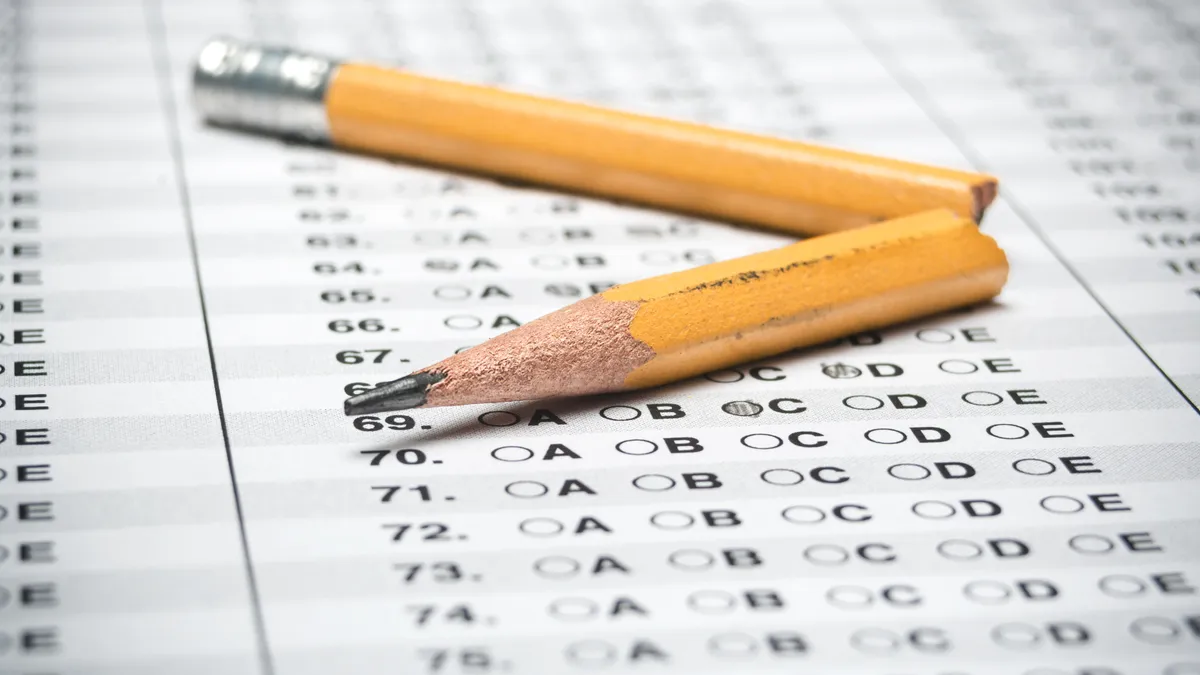Dive Brief:
-
High-poverty and high-minority school districts that spent more time in remote and hybrid instruction during the 2020-21 school year saw greater declines in academic achievement, according to a comprehensive study by Harvard University's Center for Education Policy Research and Stanford University’s Educational Opportunity Project.
-
However, researchers found pandemic learning loss linked to districts’ poverty rates, racial makeup and instructional modes similarly impacted students across different racial and socioeconomic subgroups. "This suggests that the differences in learning losses are not driven by differences in family resources, but by differences in district and community-level factors," the report’s authors wrote.
-
Additionally, there were smaller learning losses associated with remote and hybrid instruction in communities reporting higher trust in institutions, which "may be an indicator of the extent to which a community trusted/supported schools and decisions."
Dive Insight:
The more regular life changed because of the pandemic, the larger the academic losses, according to the study, which was conducted by researchers from Harvard, Stanford, Johns Hopkins University and NWEA.
Closing school buildings "may have sent a message to kids that the world is not safe, which might affect their own mental health, motivation, and engagement in learning," wrote the researchers.
Curriculum experts have advocated for accelerating learning as a popular option in response to pandemic-induced learning setbacks.
However, the researchers found this may not always be possible considering the pace of learning is determined by relatively set factors like curricula, the teaching force and school calendars.
"Thus, it seems that accelerating learning following a disruption is difficult," authors said. "Although there may be positive or negative shocks in any given year, the underlying pace of learning may be determined by a set of factors which are hard for districts to adjust in the short term."
It's also likely that additional interventions aren't enough for students to fully recover, the study found. According to "back of the envelope calculations," even a high-quality tutoring program provided to 10% of a districts' students would result in just a 0.1 grade-equivalent improvement in average scores.
The study’s authors call this "a small effect relative to the size of the learning losses in many districts."
While recovery will be a multi-year effort going forward, the study said districts' success may ultimately rest on parental demand. For example, districts may not propose drastic measures like extending the school year against parental will. "On that score, the evidence is less encouraging," the authors wrote.
Multiple surveys have suggested parents are underestimating when it comes to their children's learning loss.
A 2022 Pew survey, for example, found only a quarter of parents thought their children were still behind. A more recent study showed that about 9 in 10 parents believe their child is at or above grade level in math and/or reading.











